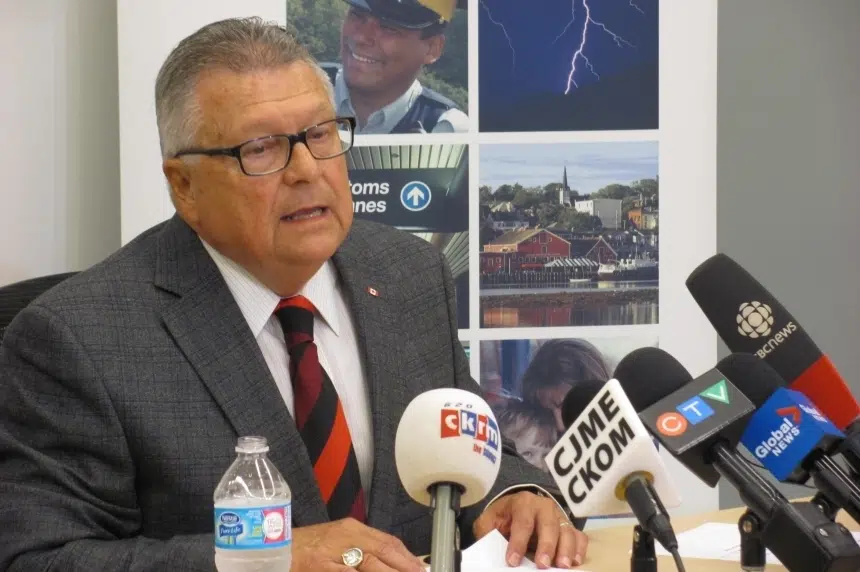Federal Public Safety Minister Ralph Goodale said that China has yet to provide evidence that pests have been discovered in imports of Canadian canola, even though that has been the reason given for blocking shipments from Richardson International and now Regina-based Viterra.
Goodale was giving a speech at a Regina Chamber of Commerce luncheon on Tuesday afternoon dealing with Canada’s economy amid global turmoil.
Along with getting U.S. tariffs lifted from Canadian steel and aluminum exports, he told the audience that restoring market access to China for canola producers is at the top of his government’s trade agenda, saying it will “spare no effort.”
But when asked if the government would take any retaliatory steps, Goodale said, “We’ll cross those bridges when we come to them.”
There are some who believe that China’s decision to block the Canadian products is linked to the detention of Huawei executive Meng Wanzhou.
However, Goodale said the governments’ conversations will be kept to the scope of product quality.
“The Chinese say that it is a technical, scientific issue. If that’s the basis for the action, we will win it. It’s the right strategy to keep it focused on the technical and scientific issues. Those are the issues where we are absolutely squeaky clean,” he said.
Getting those exports back to market will take a complete “Team Canada” approach, involving the grain inspection system and the scientific community, Goodale said. He added that Foreign Affairs Minister Chrystia Freeland and International Trade Diversification Minister Jim Carr are working with Richardson and Viterra on the next steps to take.
He added they will also seek advice from Chinese consumers, which he said have been reliable, long-term customers.
“The key thing is keeping the focus on science because on a scientific base, we’re sure we’ll win,” Goodale said.
In the meantime, he said the government will look to other markets, which will help raise product prices.
“If you move it into other markets, you can help to bring (prices) up,” Goodale said. “It’s not an easy thing to do but we do have the asset of having the very best canola in the world. After all, we invented it in Saskatchewan.”







